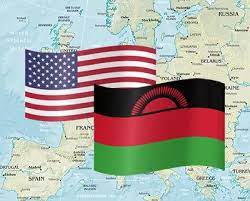The Government of Malawi says it will maintain a fixed exchange rate in the short term despite pressure to adopt a unified market rate. Authorities believe keeping the rate stable for now will help anchor inflation expectations and support overall price stability.
This position was revealed in a statement issued by International Monetary Fund (IMF) Executive Director for Malawi, Ambrose Ubisse, and his advisor, Ms. Chikonda. The statement reflects the government’s cautious approach to currency reform amid ongoing economic challenges.
Malawian authorities acknowledged the need for exchange rate unification but stressed they prefer a gradual and less disruptive transition. According to them, lessons from the last currency realignment have influenced this decision. That adjustment, they noted, produced disappointing results — including limited movement of foreign reserves from the informal market to the formal banking system, partial delivery of promised overseas development aid, and stronger inflationary pressures.
Instead of rushing into another shock policy, Malawi’s economic managers want to focus on boosting export performance and foreign exchange earnings, especially by increasing public investment in the real sector — industries like agriculture, manufacturing, and mining that directly produce goods.
The statement said the government recognises that exchange rate policy is a critical tool for economic stability, but it must be combined with other sound fiscal and monetary measures. Authorities have pledged to implement fiscal adjustments to reinforce exchange rate stability and keep inflation under control. These policy moves, according to the statement, will be rolled out after Malawi’s general elections in September 2025.
Part of the plan is to build a stronger cushion of foreign exchange reserves. The government aims to do this by ensuring that commercial banks handle the financing of imports for essential goods, freeing the central bank to accumulate reserves. Officials believe this will strengthen confidence in the fixed exchange rate system and protect the economy from external shocks like sudden drops in donor funding or global commodity price swings.
On July 22, the IMF Board of Directors reviewed Malawi’s economic programme. The Board stated that moving toward a unified, market-determined exchange rate is essential for achieving long-term macroeconomic stability and creating the right conditions for faster economic growth. IMF directors argued that a more flexible exchange rate would help the economy absorb external shocks, rebuild foreign reserves, and attract more investment.
Economists in Lilongwe say the tension between IMF recommendations and Malawi’s cautious approach is a classic policy dilemma for developing countries. On one hand, keeping the exchange rate fixed helps control prices in the short term, which is important in a country where inflation can quickly erode incomes. On the other hand, delaying unification can create market distortions, encourage black market currency trading, and make it harder for the central bank to maintain credibility in the long run.
Malawi has faced persistent foreign currency shortages in recent years, which have sometimes disrupted imports of fuel, medicines, and other essentials. The government’s strategy to rebuild reserves while keeping the rate fixed is aimed at avoiding sudden shocks that could hurt households and businesses.
For now, the authorities appear determined to stick to their plan of gradual adjustment. But analysts warn that the success of this approach will depend heavily on the country’s ability to boost exports, secure donor support, and manage inflation effectively. If these conditions are not met, pressure to move toward a more flexible exchange rate could increase sooner than expected.
